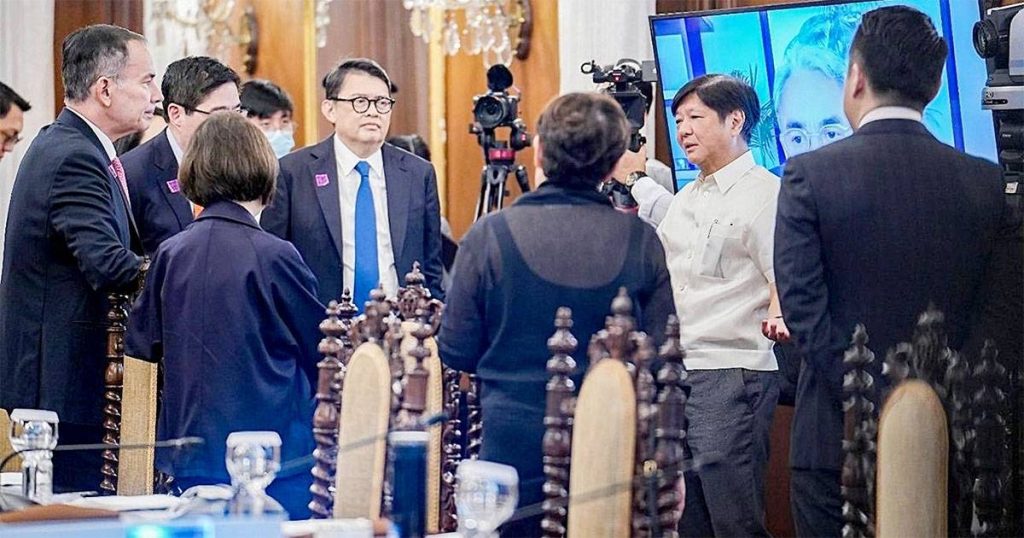
Fil-Chi Businessmen Join Go Negosyo’s First Mentoring Event for 2023
January 23, 2023
ASEAN Mentorship for Entrepreneurs Network Kicks Off Its Region-Wide Implementation
February 2, 2023
PBBM is thinking like the CEO of Philippines, Inc.
The Philippines’ GDP numbers have defied pessimists and exceeded expectations. The country’s GDP growth for 2022 ended at 7.6 percent and with a seven-in-a-row growth per quarter. This is better than even what the economic planners expected and it is the fastest growth since 1976.
The most obvious contributor is revenge spending. After nearly three years of the pandemic and despite the rising prices, people just went out and participated in the economy. For this, credit must go to both the Duterte administration and the Marcos economic team. The Duterte administration’s handling of the pandemic was not perfect, but it got us through with fewer deaths and an intact economy.
President Marcos’s appreciation of the task at hand is building on this momentum. PBBM is now in the driver’s seat, and we must help him see the country through the worst world economic crisis in decades.
I believe the President is well aware of how important it is to sustain this growth, and this is why he is thinking like a CEO: looking well ahead into the future and choosing actions that will deliver the biggest impact.
I have heard critics say that the President should stay put and handle things on the domestic front. This is like asking the family’s breadwinner to stop going to work, stay home and do chores around the house. Nothing wrong with helping out, but that would mean one day of lost income and opportunity that would have otherwise delivered enough resources to employ a helper. It’s short-sighted and it’s the thinking of small minds.
Being present at events like the World Economic Forum in Davos is an opportunity that we cannot, as a nation, afford to miss. Davos is different because of its scale. It is where everybody goes. The big names in business are regulars at Davos. It is where you go to build an international network and it is where a five-minute chat can translate to billions of investments.
I remember how the President asked us during a meeting of the Private Sector Advisory Council – which comprises the country’s top businessmen – whether or not he should go to Davos. The group was unanimous in saying yes, he should go.
My interest is that these investments and the technology that the investors bring in will eventually benefit our MSMEs. When we scale up MSMEs, we contribute to a sector that generates 62 percent of the jobs in the country. And when people have jobs, they will have the spending power that the country needs to post good growth rates like the one we saw in 2022.
Few people know this, but if you are not part of the official government delegation, you pay for your own ticket. If you ride with the President, you ride in premium economy and you follow the delegation’s schedule. The government does not spend money for the private sector in these meetings, and rightly so. Yet still, the heads of the country’s largest corporations still give of their time and resources to join the President in these events. Why?
Because they believe in the potential of the Philippines, and it is important for the audience in Davos to believe as well. For the Philippines’s biggest businessmen to stand solidly behind the President benefits the country as a whole because investors will be confident that if they park their money in the Philippines, it is safe from instability and divisiveness. Any investor has to be comfortable with the vision of the leadership of a country. The private sector is there to reinforce the message of the President: that the Philippines is a good investment, and that it is open and ready for business.
In my own experience when RFM went public, I didn’t stay home and wait for the investors to come. I didn’t sell only to local investors, I went to New York, to Singapore, to wherever the funds were. That’s just our company; what more if you represent a company with 114 million shareholders?
The investors should be comfortable with making that investment. If the CEO doesn’t go to meetings and roadshows, how will people trust that his vision is aligned with their investment plans? How will they be confident in the prospectus saying that the Philippines offers a good return on their capital when its CEO can’t be bothered to make his pitch in person?
And now with inflation and the still-volatile situation between Russia and Ukraine threatening to make this a protracted conflict, we have to be more aggressive in sustaining that 7.6 percent growth. We are not the only country gunning for more investments. Our problems are not unique. All one has to do is tune in to international news networks to realize that the high prices of goods is also a concern in first-world countries like the UK, Germany and the US.
Yes, the Philippines has problems, but we can still grow better than in previous years, despite the pandemic’s effects, the high prices and the interest rates.
We can sustain the growth, but it will take patience. If the war between Russia and the Ukraine does not escalate any further, I expect that by mid-2023, we should see lower prices and inflation come down by the end of 2023. This can still be a very good year. We just have to step aside and let the President do his job so we can all realize the end-goal of creating prosperity for all.

2/F RFM Corporate Center, Pioneer cor. Sheridan Sts. Mandaluyong City, Metro Manila, Philippines

